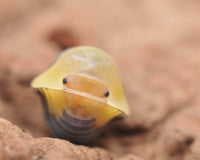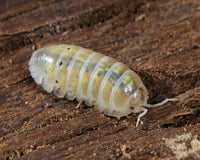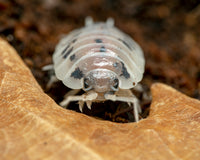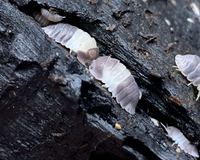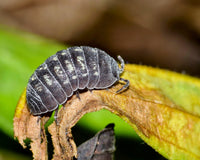Vermicomposting is a simple yet robust way to recycle organic kitchen food scraps (Green Manure), plain cardboard (Brown Manure), and black and white newspaper. It seems that "going green" is undoubtedly the trend these days. Check out our article entitled "What Do Isopods Eat?" to learn more about different composting manures and their benefits.
You often hear sayings and slogans that will help you remember that composting is the way to go, such as "green is good," "you have the power today to change tomorrow," and even the ones that are as simple as "recycle today."
These aim to get the average person to stop and think about our planet, and composting is one way to do this. As an Isopod farmer, the goal should be to close the loop and create as close to an entirely closed-loop system as possible.
Cultivating a cover crop months before inoculation of our enclosures with isopods allows us to "Chop & Drop." This technique can be utilized with our freshly grown green manure and enables the Soil FoodWeb inoculation to begin. The beginning process of taking DIRT and inoculating that into a Living Soil takes 3 weeks to fully start.
What Exactly IS Composting? And Why Does It Affect My Isopods?

Composting is the natural decomposition process that Mother Nature has certainly perfected. When you leave dead and decaying organic matter outside, it breaks down and eventually turns to simple Carbon. That is a natural process designed by Mother Nature, and it is this process that you can learn to take advantage of for your own Isopod farming secret benefits!
In fact, once you know the basics of composting and vermicomposting, you will find that the entire vermicomposting process will work faster than composting does when left alone in nature. The real advantage of utilizing well researched composting methods is that you are taking "waste," whether they are kitchen scraps or other organic matter, and using the newly created worm castings to improve overall soil medium quality! In turn, this allows you to improve the health of the microbial world. Isopods THRIVE on soil substrates that are living and filled with an abundance of microbial life!
Fun Fact: There Are More Microbes In A Single Tablespoon Of Living Soil Than People On This Planet!
-We encourage you to test this for yourself by adding store-bought worm castings to your Cubaris sp. breeding enclosures. About a month later, we assure you the overall health of your Isopods will begin to improve. Now imagine if you taught yourself how to make worm castings that are microbial rich and homemade?
Did you know that it is estimated that between 20 and 30 percent of garbage filling up the landfills is actually yard and kitchen waste? This is waste that can be used positively to benefit and feed your isopods for pennies on the dollar. The organic waste you produce both in and around your household will go back into the isopods environment and become valuable nutritional resources.
A Look At The Basics of Composting For Isopod Health

Now that you have a general idea of what composting & vermicomposting for isopods is, it is time to explore the excellent (and beneficial) world of composting. Composting is not something that just environmental enthusiasts or even avid gardeners do (or should do).
The basic idea behind composting for isopods is that everything you save from going into the garbage can equal fewer things that end up filling our landfills. When you stop to think about the mounds and mounds of trash produced by everyone around the world, it is easy to see why composting, especially vermicomposting, is preferred.
What other stuff can I vermicompost for my isopods? How about the potato peels leftover from those mashed potatoes that you cooked for dinner? How about the non-pesticide grass clippings leftover from mowing your yard? When you start bagging all of them up, these all take up significant room in the garbage bin as well.
So, why not take the time to recycle them into something useful for our developing isopod populations? Composting can help you do this. It is relatively easy, and you really don't need any special skills or even a lot of special tools and equipment.
Who Uses Compost For Isopod Health?
You may wonder why you should spend the effort into making compost for your isopod colonies. Using these living soil substrates compared to buying dead DIRT makes a world of difference when cultivating rare and more expensive Cubaris sp. isopods. There are many people that vermicompost, and if you are breeding isopods as a profession, this will allow you to produce healthier isopods to sell to the public. Composting takes up very little room, does not smell, and it is easy to do. Most commonly, gardeners and those who enjoy growing organic fruits and organic vegetables choose to compost.
This is because when they use it, they can see the benefits of composting every day. The benefits of composting are invaluable to the avid isopod farmer. Compost material allows the soil substrate to hold more water. Thus, the isopod farmer's soil substrate will create and maintain biodiversity easier with less water usage. Besides, compost, especially vermicompost, will add a wider variety of nutrients to your newly created isopod soil substrate. Organic nutrients are essential and vital to isopod farmers specializing in the rare and exotic forms of isopods.
Without an adequate supply of nutrients in the soil substrate, the isopods will begin to suffer. So, in short, anyone who enjoys a little yard work and takes care of flowers, trees, shrubs, lawns, and vegetables, can use their waste to compost soil diversity into their isopod enclosures. Don't have a yard? Maybe you have a few houseplants or keep a container garden on your patio or deck that you can use as green manure for your isopods and composting worms to break down in a symbiotic relationship!
More Benefits of Vermicomposting & Composting For Isopods
There are so many great benefits to composting. If you have ever explored the world of organic gardening or have tried to keep your lawn green and healthy without using pesticides and fungicides, then you know it can prove quite costly to maintain a green and organically healthy lawn.
Most isopod farmers seem to encourage new isopod breeders to spend their money on synthetic food sources or overprice freeze-dried foods that are simply white-labeled and marked up in cost with NO added isopod nutritional value. That's why our team loves to educate new isopod farmers so they can learn to breed isopods for pennies on the dollar compared to conventional methods!
You can also choose to pocket that money and use what you already have to get BETTER and HEALTHIER isopods. Composting will give you an almost constant supply of free, bio-active, and practical, environmentally friendly soil conditioners and fertilizers to use as you continue to build out your isopod bins.
When you take care of your newly created soil substrates, your isopods need organic matter to THRIVE and BREED. Using these methods allows the Isopod farmer's soil substrates to improve week after week to eventually DRAMATIC improvements month after month. Unlike expensive (and potentially harmful) chemical fertilizers, organic compost has all of the nutrients and bioactive microorganisms your isopods need to establish quicker.
You can forget needing or using chemicals all together when you organically compost for your isopods. You have it when you need it, and you don't have to spend the extra money on chemicals and other expensive isopod breeding supplies. You also do not have to worry about the potential impact of contaminating your isopod soil substrates.
Building Isopod Soil Substrates

Rhizosphere Infographic Created By: Tangled Bank Studios
To keep your isopods soil substrate healthy, any experienced "organic composter" knows about the cover crop's Rhizosphere. When you use composting correctly, it will also help keep the soil loose and will give your microbial world better access to the soil through this Rhizosphere. This is quite beneficial because every isopod farmer knows the difficulty of trying to build a micro-ecosystems with substrates that are DIRT and contain NO biology what so ever.
You will also find that the right recipe for organic compost will reduce your water level compaction issues. Wonder how? When the soil is loose, the compost will give the soil an overall better texture. This improved texture will help hold in the water. This will require less oversight from the isopod farmer as nature knows what is best!
Composting is a natural part of life, and natural compost forms everywhere and serves an integral part of the environment. Anything that lives - plants, fruits, vegetables, animals - live and die eventually. When returned to the Earth, the composting cycle begins. The result is a rich soil-like material that nurtures future Isopod colonies. This is what organic composting is all about, and when you compost at home, you are harnessing this power for your own finical benefits.
Just about anything that you use in your home—any type of organic matter—can be used to make compost. If you have organic vegetable or organic fruit scraps, non-fungicide leaves, non-pesticide grass clippings, twigs or small branches, wood chips or wood shavings, tea bags, and even coffee grounds and filters can be thrown into your composting bin!
Soil Microorganisms Work For Your Isopods

Have you ever heard of soil microorganisms? By definition, a soil microorganism is an organism that can only be seen with a microscope. They are usually single-celled and may include algae, fungi, protozoan, and bacteria.
While most are considered "unicellular," there are also multicellular microorganisms. Some can even be seen to the naked human eye! Microorganisms are the basis and magic behind composting. They help break down the organic material quickly and efficiently into carbon, THE "currency of the microbial world."
Where Are Microorganisms Found?
This tiny microscopic world live in all parts of the biosphere—they are essential to life, both for Humans and Isopods. Microorganisms are critical to life and to recycling nutrients back to the Earth. They help the ecosystem by decomposing.
Besides, studies into microorganisms can help fix nitrogen levels, and microbes in the air help with precipitation and weather. Interestingly enough, people who are involved with biotechnology can use microorganisms to their advantage. They can be used in food, beverages, medicine, and have hundreds of other uses.
Microorganisms In Composting

When talking about microorganisms, they are essential to composting. These tiny living microbes do most of the work when breaking down the organic material into usable compost.
In composting, fungi and bacteria are very important in the whole composting process. Besides, living insects and animals that live in the soil also take part in the composting process.
Many Isopod farmers find earthworms very useful in composting. They use organic material like food, and this, in turn, will provide many valuable nutrients that are necessary for the healthy growth of plants and other living things.
When the composting process is complete, the nutrients are used once again by the Earth. This is a natural way to recycle and is very important to everyone. When you make your own backyard compost, it can be mixed in with the soil to serve as mulch and even fertilizer.








